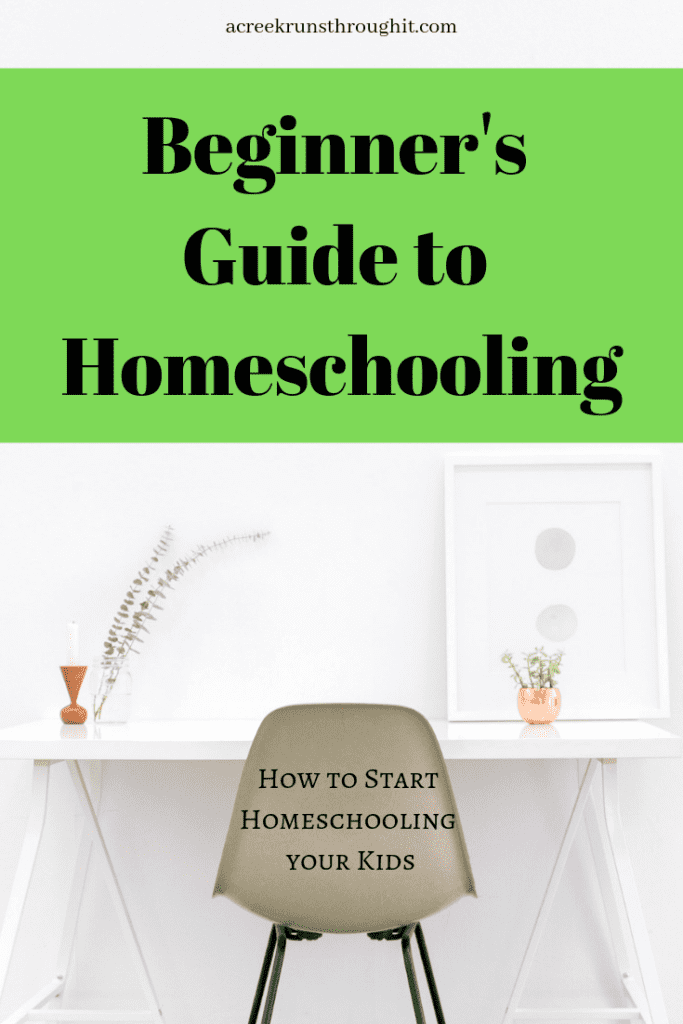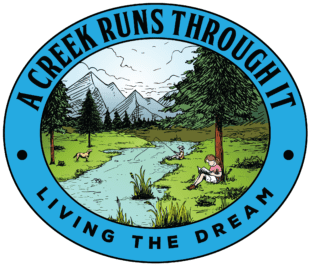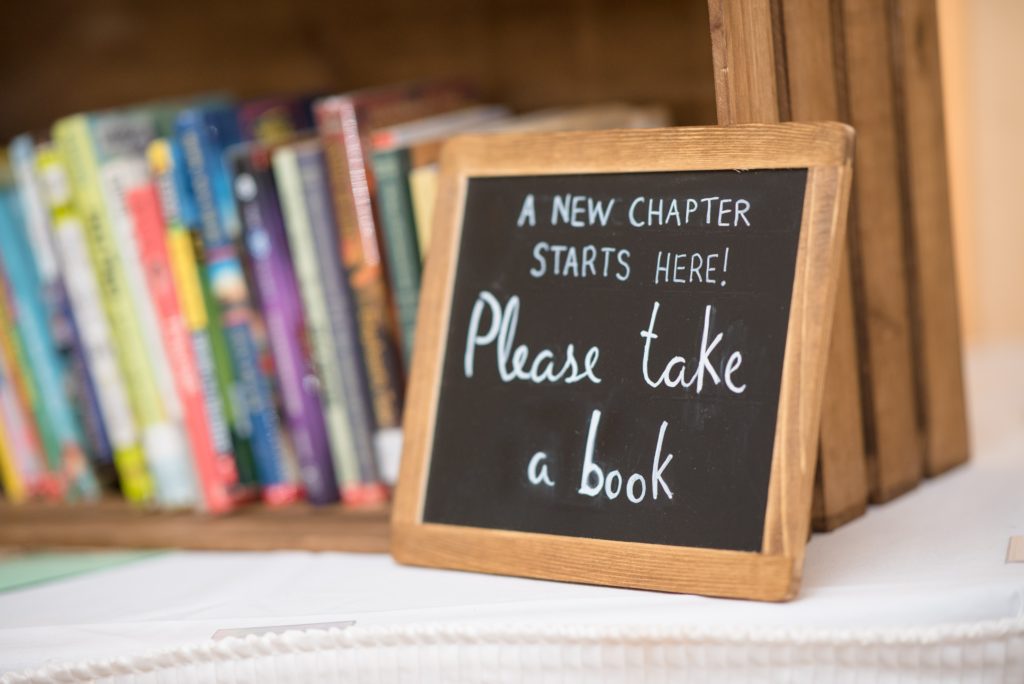*This post contains affiliate links, which means I receive a small commission, at no extra cost to you, if you make a purchase using this link*
The Beginners Guide to Homeschooling
We began our homeschooling journey when our oldest child was in first grade. She is now a 7th grader. Hard to believe we are in the midst of middle school and looking towards high school- yikes! Our second child is five years younger, so we are still deep in the trenches of elementary school as well. For our family, homeschooling is a way of life. We LOVE the homeschooling lifestyle! Is it all unicorns and rainbows? NO, absolutely not- but it has been a fulfilling and worthwhile adventure for our family.
Update: We now have an upcoming 12th and 7th grader! It goes so fast. We still love homeschooling and have all learned a lot along the way.
Where to begin
I remember the hours and hours and hours of research I put into planning that first year of school. My head was spinning with all the choices out there. While we are extremely blessed to live in a time where homeschool information and curriculum is plentiful, the options are mind boggling! Wading through all the curriculum choices is difficult and overwhelming. So, where does a family begin when starting their homeschool journey? I’m glad you asked…
Note: I still spend hours researching curriculum but now it’s more of a hobby- or possibly obsession- no, let’s go with passion. Yes, it’s a passion of mine! But seriously- I love homeschooling and I know what a daunting task it can be! I hope that by sharing the tips I have learned along the way it will help to make your journey a bit easier. Now, grab a cup of tea or coffee-it’s a long one!
How to get started with homeschooling- 7 Steps
1. The Legal Stuff
2. Homeschool Styles
Ok now that the legal stuff is out of the way you can start looking at the fun stuff. Yay! What kind of education do you envision for your child or children? Huh…
Kind of hard to answer that if you have never homeschooled before, isn’t it? This is why my advice is to research homeschool styles & methods. The different methods are vast and range from Unschooling to Charlotte Mason to Unit Studies to Classical to School- at- Home. Look at the various styles to see what resonates with your heart, with your child’s learning style, and with your teaching style. This will give you a starting point for picking out
- 102 Top Picks for Homeschool Curriculum by Cathy Duffy- This book will help you discover your child’s learning style, your educational method preference, and your teaching style. It gives the author’s top curriculum picks with descriptions of various curriculum. There is a homeschool methods quiz that I found extremely helpful in narrowing down our preferences. Have your husband take the quiz, too. This will help you focus on what will fit your family.
- The Well-Trained Mind A Guide to Classical Education at Home by Susan Wise Bauer and Jessie Wise. The fourth edition will have the most current curriculum suggestions. Also, head over to the welltrainedmind.com forums for tons of info and reviews on
various curriculum. - Teaching from Rest A Homeschooler’s Guide to Unshakable Peace by Sarah Mackenzie
- Charlotte Mason Companion Personal Reflections on The Gentle Art of Learning by Karen Andreola
- The Core by Leigh Bortins
- For the Children’s Sake by Susan Schaeffer Macaulay
Remember- don’t stress out if you don’t have ONE, single style that you love. This just gives you a taste and a realization of what is out there. Honestly, before homeschooling I had no clue that there were so many educational methods and I knew nothing about Charlotte Mason or Classical teaching methods. I learned over time and so will you. As you school your children your method will evolve and grow with you. You don’t have to be an expert in these areas- you are just gaining knowledge and trying to narrow down your curriculum search.
3. Homeschool Curriculum
My favorite part. The good news is there is a ton of curriculum out there. The bad news is you cannot use it all so you have to pick! Now that you know what educational methods interest you, start looking at curriculum vendors that match those styles. If you are a paper gal like me- who still needs and loves a paper planner- I also recommend that you request printed catalogs from the companies that interest you. The homeschool catalogs that I get and love to look through for curriculum and book ideas are Sonlight, Veritas Press, Memoria Press, Classical Academic Press, and Heart of Dakota. I found that the websites were often confusing or difficult to navigate until I looked at the program and options all laid out in the catalog. Once I have wrapped my brain around the full scope of the curriculum, I can go back to the website to view samples for the grades or subjects that I am considering.
Curriculum List (this is by no means an exhaustive list- it is just a starting point for you):
- Literature Based
- Five in a Row
- Sonlight
- Book Shark (the secular version of Sonlight)
- Beautiful Feet Books
- Moving Beyond the Page
- Classical
- Charlotte Mason
- Charlotte
Mason’ish (use some aspects of Charlotte Mason, could be literature based as well) - Traditional
- Rainbow Resource (not a curriculum, but they carry all things homeschool and are a wealth of information)
- Christian Book (again not a curriculum, but they carry homeschool curriculum and often have excellent samples)
Tip: Often curriculum sites have forums that you can access to learn more about homeschooling and gain insight from parents experienced with that curriculum. Sometimes the curriculum authors even pop on and answer questions.
Here is a simple sheet I made for planning out curricula for each child. Each year I like to have a focus for my children based on their needs. For example, this year my son’s focus is phonics and handwriting. By writing that focus down it helps to keep me on track during my curriculum search. I then write down the subject-curriculum vendo, where to buy, and price (Ex. Math- Math-U-See Gamma/ Sonlight/ $88). Hope this helps!

4. Hands-On
Try to get your hands on the curriculum you are considering.
- Friends/acquaintances– If you know anyone, ANYONE, who homeschools ask if you can meet for tea or coffee, so you can see their curriculum and pick their brain about homeschooling. Most of us homeschool moms love to talk curriculum and have a heart for helping those new to this journey.
- Homeschool Conventions- If you don’t know anyone who homeschools,
see if there is a homeschool convention near you. Before going make sure to check the vendor list (no point in going if the curriculum you are searching for won’t be there). Also, write down the vendor booths you want to visit so that you are sure to visit them and are not completely overwhelmed. - Print Samples- Print off samples of the curriculum you are considering. Spend time reading through them and comparing the samples. You could even get some of the books from the library and give the plans a test run.
5. Eclectic or Boxed Curriculum
You can go the eclectic route and pick different subjects from different vendors or you can choose a boxed curriculum that includes all your subjects to get you started. I think a boxed curriculum with lesson plans is often useful for new homeschoolers. It provides you with a framework and a plan, from there you can venture out into the eclectic world if you want. Or stick with the boxed curriculum if it works for your family!
If a boxed curriculum is out of the question due to finances, then try to just pick 2-3 subjects that interest you and/or your kids. Start learning together using those subjects. Then once you have those implemented you can add in other subjects. This allows you to see your child’s learning preference and your teaching preference before investing in other curriculum. There is a lot of curriculum out there so at some point you will just have to pick one and start! Check out this post to see our current curriculum choices.
6. Find Your People
You and your children are going to need a social group. Research homeschool, sports and other interest-led groups in your area. The number of groups will really depend on the size of your town. Now that we are in a smaller town in Colorado our group options are limited but we have still been able to participate in Classical Conversations, various sports, Pokemon League, 4H

7. Grace!
Give yourself grace (and wiggle room in your curriculum budget)! Some of your choices are not going to work and that is OK. If you can tweak it to make it work for your family and get through the year, great! If not, move onto a different option and call it a lesson learned. It is going to take time for you to find what works for you as the teacher and for your child as the student. If you don’t like teaching the curriculum, then it will just sit on your shelf and never get done- trust me on this one. Having a little extra in your budget for those curriculum picks that don’t work out will allow you to find something else without causing undue financial distress.
Here’s a little story about my homeschool learning curve with our daughter…
We began homeschooling when our daughter was in first grade. I thought she would love hands-on activities. What busy, little 6 year old wouldn’t? She was a mover, a doer, always active just like her daddy. I purchased Story of the World ancient times along with the activity book. One of the first activities was to create an “archeological dig” in your yard. I thought- Oh! She will love that!
I was so wrong! She did not like contrived and pre-planned activities. She wondered why the heck I was burying stuff in the yard and making her dig it up! It’s funny now, but at the time I was honestly a bit hurt! I had taken the time to create this fun learning experience for her and she did not appreciate it! WHAT?? Talk about a humbling experience. I had to step back and realize that this was about how she learned and I needed to take note and move on.
What I learned was that yes she is a busy, active child but she likes to get her “school” stuff done and then have time for her own activities and interests. What I soon found was that very often her crafts and imaginary play reflected what we were reading or learning about. For example, when we were reading about pioneers she spent an entire afternoon turning her Red Flyer wagon into a pioneer wagon using sticks, twine,
Fast forward to our second child and he LOVES pre-planned activities, coloring pages, and crafts! So there you go! Be ready to reflect on your own teaching style versus your child’s learning style and make adjustments as needed. And most likely they will be needed.
Be flexible, you are going to choose some things that take you and your kids in the wrong direction- it’s OK. Just reflect, learn from the experience, and move on.
Note: We absolutely love Story of the World and my daughter has listened to the audio CD’s more times than I can count. She did not like the activity book for the reasons I described above, but I’m glad I saved it because our son will love it!
Common Questions About Homeschooling
What about socialization?
- Ah, the question we homeschoolers get asked the most and that honestly, we are all concerned about at some point. In large towns, there are so many homeschool opportunities now that you could honestly be out of the house every day (but then no school would get done!). In smaller communities, my
best advice is to be very intentional in planning activities and social events for your children. They need to have a friend group, so reach out to your local homeschool group and make some connections. I honestly don’t believe that the classroom setting as it is today creates healthy socialization skills. At no other time in their life will your child consistently be in a group of 20+ peers of the same age. Interactions that your child has as a homeschooler are much more reflective of the typical social skills required for life.
How do you organize all your curriculum?
- Bookshelves and baskets are your new best friends!
What subjects should I teach?
- This really depends on the age of your kids and the requirements of your state. I am a firm believer in the basics for the K-2nd or 3rd crowd- until they are reading fluently, focus on the 3R’s (Reading, wRiting, aRithmetic aka phonics, handwriting, math) then add the extra stuff. Really this can guide you for all ages by expanding on the 3R’s- so you will now have language arts (literature, grammar, writing, spelling), math, plus any extras (history, science, poetry, music, cursive, social studies, geography, foreign language). Make sure to teach any subjects that your state requires.
Help! I’m completely overwhelmed by all the curriculum choices. Where should I begin?
- Stay calm. Narrow down your options to a few and then sit down with your husband (or a friend) and talk it out. Or if you are a list person make a pros/cons list for each curriculum you are choosing. If one is not a clear “winner” then just pick one and start. Remember, this is why you have made wiggle room in your budget. You are going to research and make the best decision you can, but ultimately you won’t know until you try! There will be hits and there will be misses.
- Check out our 2018/2019 second grade curriculum picks here and our seventh grade picks here.
What does a typical homeschool day look like?
- This is going to be different for every family and perhaps for every child. For us, our days have a basic routine or flow to them. We do not follow a strict schedule with everything planned to the exact time. That just does not work for us. Our days start with chores (we have lots of animals to take care of around here), then breakfast, and then school. Our second grader typically does school from about 9 until 1ish, while our seventh grader works from about 9 until around 3:30ish. With a break for lunch and a little outside play.
How much time do you spend planning?
- Once I have researched and decided what we are using, I do not spend any time planning each week. I prefer to use curricula that are open and go, meaning I do not need to plan out each and every lesson. I can simply open the book to where we left off and complete the lesson for the day.
The Last Thing You Need to Know about Homeschooling
There is no perfect curriculum out there. I know that hurts, but it’s the truth. The exact curriculum and homeschool routine that works for my family, probably will not work for yours. You have to find what works best for you and your family. Then what works may even change depending on the season of life you are in. Again, I know that’s a bit painful, but it’s the truth. Do your research, pick your curriculum and go with it making changes as you need to.
Homeschooling is about educating our children and building strong bonds with them. Start doing, discussing and learning with your kids! Taking that time with them- to explore with them, read with them, discuss with them- that is what will guide you in your homeschool decisions. Oh and don’t forget that grace part! Be kind to yourself and your kids. This will be a big lifestyle change and you will all need time to adjust.

What questions do you have about homeschooling? Share in the comments below and I will try to answer.
Happy Homeschool Planning!
XOXO, Melissa

